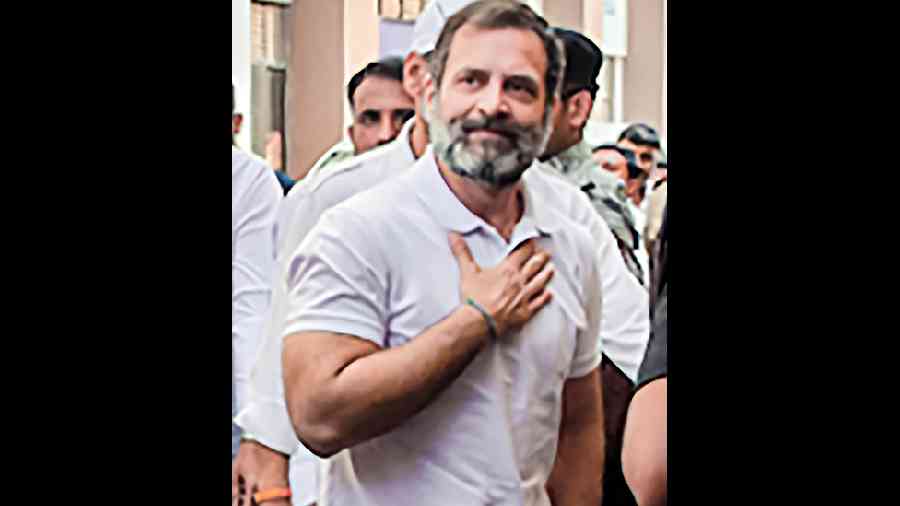The court in Gujarat’s Surat that on Thursday sentenced Congress leader Rahul Gandhi to a two-year jail term in a criminal defamation case noted that the seriousness of his crime increased because a speech delivered by a member of Parliament has a “very wide impact on the public”.
Convicting Rahul under Sections 499 and 500 of the Indian Penal Code for defamation, chief judicial magistrate H.H. Varma observed that if the accused was given a lesser punishment, it would send the wrong message to the public and the purpose of the defamation law would not be fulfilled.
Rahul could have limited his speech to Prime Minister Narendra Modi, Nirav Modi, Vijay Mallya, Mehul Choksi and Anil Ambani, but he “intentionally” made a statement that hurt individuals carrying the Modi surname, thereby committing criminal defamation, the court said.
The accused knew the impact his remark would have on the public as the speech was delivered during an election campaign, the court said, adding that the Congress leader knew how he would gain from the controversial remark.
The case had been registered against Rahul for his remark “how come all the thieves have Modi as the common surname?”
The complaint against him was lodged by BJP MLA and former Gujarat minister Purnesh Modi.
The MP from Wayanad made the remark at a rally at Kolar in Karnataka on April 13, 2019, during the Lok Sabha election campaign.
“The accused himself is a member of Parliament, and the address made by a person in his capacity as an MP has a very wide impact on the public, because of which the seriousness of the crime increases,” the court said.
“If the accused is given lesser punishment, it will send a wrong message to the public and the purpose of defamation (law) is not fulfilled and slandering will become easy,” it further said.
The court also mentioned the criminal contempt proceedings initiated against Rahul by the Supreme Court in 2018 over his “chowkidaar chor hai” remark, and noted that the apex court had then asked him to remain “alert” in the future after he tendered an unconditional apology.
“Even though the accused was advised by the Supreme Court to remain alert, there does not seem to be any change in his conduct,” the magistrate’s court observed. In the argument over the quantum of sentence in the present criminal defamation case, Rahul said he had delivered the speech according to his duty in the interest of the people, and he did not discriminate against anybody but loved and cherished all the people of the country.
The defence lawyer submitted that Rahul did not intend to insult anybody intentionally.
The complainant had not suffered any kind of pain or loss (because of the remarks) and the accused had never been found guilty of any crime before, his lawyer said while seeking a lighter punishment.
But the prosecution argued that it was important for the court to consider the “conduct” of the accused who had in the past apologised to the Supreme Court.
The court also rejected the defence’s argument that the electronic evidence produced by the complainant in the form of CDs and a pen drive containing the controversial speech might have been tampered with.
A mere allegation without any evidence cannot be accepted, the court said.
In his complaint, Purnesh Modi had said that Rahul’s remark during the April 13, 2019, rally had caused “irreparable loss to his personal and social reputation due to the fact that he is an MLA and social worker”.
During his cross-examination, Purnesh Modi acknowledged that Rahul’s speech was not directed against him personally.
The court turned down the submission of Rahul’s lawyer that the proceedings were not followed properly from the start and it did not follow Section 202 (1) of the Code of Criminal Procedure and an order was not passed after an inquiry before issuing the summons against him.
The court also rejected the defence’s argument that Rahul made a “fair comment” as part of his responsibility as a leader of an Opposition party to highlight the government’s failure to work for the poor and in fighting corruption.










